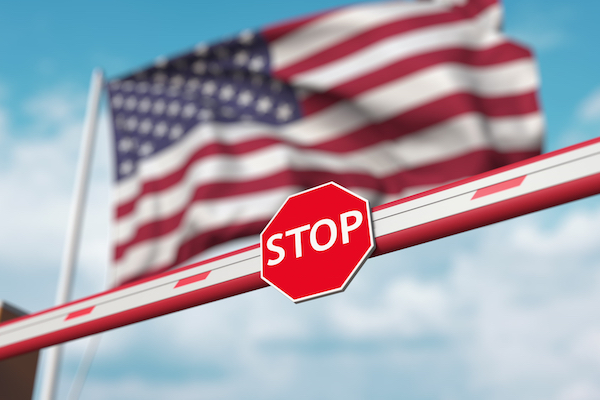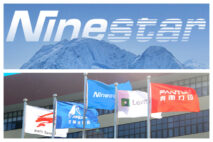It’s been a week since the Forced Labor Enforcement Task Force (FLETF), which is led by the United States Department of Homeland Security (DHS), imposed a ban on goods produced by Ninestar Corporation and eight of its Zhuhai, China-based subsidiaries. According to import data from Descartes Datamyne service, only a few shipments from the banned firms have entered the United States since the embargo went into effect on June 12.
It does appear, however, that products from many other Ninestar affiliates that have not been banned continue to flow through U.S. ports of entry. Moreover, many of Ninestar’s products currently under embargo remain readily available on large e-commerce platforms like Amazon.com and Walmart.com.
Background
On June 9, DHS stunned the industry when it announced that the FLETF placed Ninestar and its eight subsidiaries on the Uyghur Forced Labor Prevention Act (UFLPA) Entity List (see “Ninestar Imports Banned by U.S. Government Due to Forced Labor Concerns”). Being put on the list meant that all products marketed by the Ninestar companies were embargoed effective June 12. In its announcement, the department said it took the dramatic step because the business practices of the embargoed companies “target members of persecuted groups, including Uyghur minorities” in China.
In addition to Ninestar Corporation, the following eight Zhuhai-based subsidiaries were placed on the UFLPA Entity List:
- Zhuhai Ninestar Information Technology Co. Ltd.;
- Zhuhai Pantum Electronics Co. Ltd.;
- Zhuhai Apex Microelectronics Co., Ltd.;
- Geehy Semiconductor Co., Ltd.;
- Zhuhai Pu-Tech Industrial Co., Ltd.;
- Zhuhai G&G Digital Technology Co., Ltd.;
- Zhuhai Seine Printing Technology Co., Ltd.; and
- Zhuhai Ninestar Management Co., Ltd.
The UFLPA, which was signed into law in December 2021, prohibits goods produced in China’s Xinjiang Uyghur Autonomous Region from being imported into the United States. Organizations from around the world including the United Nations have determined that the use of forced labor is widespread in Xinjiang. Despite the fact that China’s government strongly objects to any claims that Uyghurs are mistreated, U.S. authorities assume goods produced in Xinjiang violate Section 307 of the Tariff Act of 1930, which prohibits the import of any product made with forced labor.
We contacted Ninestar, but the firm declined to comment on the embargo. It did, however, issue a short statement in China on June 12 acknowledging it was aware of the actions taken by DHS. In our machine-translated copy of the announcement, Ninestar vowed that it “abide[s]by the applicable standards of international labor protection, and fully protect[s]the legitimate rights and interests of laborers.” The firm said it would issue “further announcements if necessary.” To our knowledge, Ninestar has not provided any additional statements.
The ban was supposed to go into effect on June 12. Shipments have arrived since then, although the fate of the cargo is unknown. According to Datamyne’s records, a container of printers from Ninestar Corporation arrived in the Port of Los Angeles on June 13 bound for Sharp Electronics. A container of cartridges arrived at the same port on June 16 in route to the same customer. On June 15, a shipment of blades for Static Control Components from Zhuhai Pu-Tech Industrial Co. arrived in Newark. As mentioned, we don’t know if these shipments were seized or allowed to be transported to the customers.
The Aftermath
While Ninestar Corporation has remained tight-lipped, its largest and arguably most important subsidiary, Lexmark International, has been talking to the press, albeit selectively. Ninestar is part of a consortium of Chinese investors that acquired the U.S.-based OEM in 2016 (see “It’s a Done Deal: Apex Has Acquired Lexmark”). Ninestar currently holds a 63.04 percent stake in Lexmark (see “Ninestar to Increase Its Stake in Lexmark”).
In an article that appeared in the Wall Street Journal on the day that DHS added Ninestar and its subsidiaries to the UFLPA, a Lexmark spokesperson was quoted as saying the firm did not “anticipate business disruption” from the action. While Ninestar is a majority owner, the spokesperson said that “Lexmark investors have no operational control of the company.” According to the article, the Lexmark representative did not “directly respond” to a question regarding sourcing printers from Ninestar.
Like Ninestar, Lexmark declined our requests to comment on the situation. We did see a letter the firm purportedly sent to customers and partners on June 12 (see “Lexmark Seeks to Reassure Partners after U.S. Ban on Ninestar”).
While we could not find any official announcement on Lexmark’s website, Industry Analysts, Inc. (IA) reported on June 15 that Lexmark put out an “official response.” According to the statement, which was perhaps exclusive to IA, Lexmark emphasized that it “operates as an independent entity, maintaining its own supply chains, manufacturing capabilities, and business operations.” Lexmark’s independence notwithstanding, IA said that the firm was forced to put a “a robust contingency plan in place to mitigate any potential disruptions.” In its conclusion, IA opined that “The DHS action has indeed cast a cloud over Lexmark,” but its “swift response” provided “reassurance for its U.S. resellers and customers.”
We agree with IA that Lexmark continues to operate under a cloud, and we will be watching to see if it continues to import products from its majority shareholder. For the past several years, Ninestar has boasted of the large investments it was making to manufacture Lexmark machines in Zhuhai. In 2019, for example, the Chinese firm said it would invest CNY 9 billion ($1.3 billion) in a Zhuhai factory capable of producing 4 million printers annually (see “Ninestar Discusses Lexmark Loans and Printer Production Plant”). It appears that Lexmark now gets a sizable portion of its machines, supplies, and other products from China. A recent ruling from U.S. Customer and Border Patrol (CBP) demanded that Lexmark use China as the country of origin marking on certain Lexmark devices rather than Mexico, where the firm operates an assembly plant. It remains to be seen if this decision impacts Lexmark’s ability to continue to import the machines using the Chinese components.
Who’s Still Importing?
U.S. import records in the Datamyne service indicate that the majority of products Lexmark imported from Ninestar in 2023 were toner cartridges as well as some finished printers and printer parts. According to the import records we reviewed, the products were all from Ninestar Electronic Company Limited in Hong Kong, which we believe is a trading company and is not on the list of embargoed companies. Ninestar Electronic Company also supplies several large U.S.-based wholesalers, including Ingram Micro and Synnex Corporation. While the trading company’s products are not banned from the United States, it is likely that the firm exports products from Zhuhai that could be embargoed. Prior to the embargo, Lexmark also imported several containers of printers, parts, and cartridges from Ninestar’s other hardware manufacturer, Pantum, which is now on the UFLPA Entity List.
In addition to Lexmark International, there are other Ninestar affiliates based in the United States that may be adversely impacted by the embargo. Static Control Components is one example. Once a large cartridge-component manufacturer, the Sanford, NC-based subsidiary has changed its business model and has become more of a distributor since it was acquired in 2015 by Ninestar’s Apex Microelectronics subsidiary (see “Static Control and Apex Microelectronics to Merge”).
While Static Control Components imports its toners and drums from various sources, today many Static Control-branded products are sourced from another Hong Kong-based trading company, Ninestar Image Tech Limited. Like Lexmark’s supplier Ninestar Electronic Company, Ninestar Image Tech Limited is not under any import ban, but we believe that some of the products it exports may originate at embargoed Ninestar facilities in Zhuhai. According to records we saw, Static Control also marketed blades that it imported from Zhuhai Pu-Tech Industrial Co., which is one of the firms that is now prohibited by DHS from exporting to the United States.
According to a prepared statement from Static Control Components issued on June 19, the firm does not anticipate any interruptions to its supply of “components, toners, chips and cartridges.” The firm said it gets its products from a “wide range of suppliers.” The firm assured its customers, “We respect and follow the laws of the United States and strictly prohibit any type of forced labor in our supply chain, and our policies apply to direct and authorized suppliers.”
Ninestar’s U.S. Cartridge Business
A key importer of Ninestar’s finished third-party cartridges is Ninestar Technology Company. Established in Harrison, NJ, in 2001, the firm also does business in California and has offices in Chino, CA. Ninestar Technology Company is one of Ninestar Image Tech Limited’s main customers, and it is the only U.S. firm we found to import product from Imaging Lab Tech Limited, yet another Hong Kong-based subsidiary of Ninestar Corporation.
Given the various brands associated with Ninestar Technology Company, it appears the firm does a significant amount of business on large e-commerce platforms in the United States, including Amazon.com and Walmart.com. According to Ninestar Technology’s most recent corporate filing with the State of California, Weiming Dai is the firm’s secretary and chief financial officer as well as its agent. He also has the same positions at iCartridge Corp., a Mira Loma, CA-based firm that holds the trademark for myCartridge, a popular brand of third-party consumables sold online. iCartridge also owns a series of trademarks on other myCartridge brands such as myCartridge Supcolor, myCartridge Suprint, and myCartridge Phoever. When we checked, the availability of these products has not been impacted by the embargo. A broad assortment of myCartridge-branded ink, toner, and ribbon cartridges were selling on Amazon.com and Walmart.com as well as other U.S. websites.
The various myCartridge brands are just a sliver of the third-party supplies that Ninestar sells in the United States. According to legal filings in a case brought by ML Products, a third-party supplies seller on Amazon, Mr. Dai has ties to at least eight different brands sold on Amazon including myCartridge (see “ML Products Opposes Motions to Dismiss Its Lawsuit over Rivals’ Amazon Practices”). All this business is now at risk. Our research indicates that the myCartridge brands and others Mr. Dai is associated with are tied to firms on the UPFLA Entities List.
ML Products said that Mr. Dai is employed by Lemero and Plenty Talent, two firms that share the same street address in Mira Loma, CA, along with iCartridge. We confirmed on the California Secretary of State site that Mr. Dai is an agent for the firms. They are also both listed on Ninestar Corporation’s 2022 annual report as U.S.-based subsidiaries. Moreover, the banned subsidiary Zhuhai Seine Printing Technology owns the Lemero trademark along with several others that appear that are currently available on Amazon.com and Walmart.com. ML Products alleged that Ninestar and its subsidiaries have set up an “opaque web of sham business entities” to “create the false appearance of competition among its own toner and ink brands.” The defendants have moved to dismiss the lawsuit; we have yet to see a judgment on the motions to dismiss.
Free and Clear?
While the outlook for the above Ninestar subsidiaries is uncertain due to their ties to Ninestar companies banned from exporting to the United States, others seem to be operating well clear of the banned exporters. Acquired in 2021 by Ninestar Corporation (see “Ninestar Has Acquired Rainbow Tech and Green Project”), Green Project is a subsidiary that does not appear to be reliant on the embargoed Zhuhai-based firms. From what we can see the bulk of Green Project’s imports come from Ninestar Image (Malaysia) rather than from factories in Zhuhai. We did note, however, that one of its lower-volume suppliers is the Hong Kong-based trade company Ninestar Image Tech Limited, which in the past has exported products from Ninestar factories in Zhuhai that now are on the UFLPA Entity List.
Like Green Project, a couple of the large cartridge manufacturers that Ninestar Corp. acquired several years ago also seem to be operating in the United States without importing products from the embargoed companies. In 2017, Ninestar acquired a 51 percent stake in three different Chinese consumables makers: Zhuhai Zhongrun Jingjie Printing Technology Co. (Ink-Tank); Zhuhai Xinwei Technology Co., Ltd. (Kingway); and Zhuhai Tuojia Technology Co. (Topjet) (see “Ninestar Corporation Announces Its First-Half 2017 Financial Results”). In 2020, the company acquired all of Ink-Tank and Kingway (see “Ninestar Marches Ahead with Plan to Acquire Remaining Stake in Ink-Tank and Kingway”). Ninestar continues to hold a majority position in Topjet after Topjet declined to be acquired outright (see “Ninestar Runs into Hurdle with Topjet Acquisition”).
Prior to their acquisitions, our research showed that all three firms did business in the United States, but things have changed somewhat. Today, Kingway- and KingJet-branded products continue to be marketed in the United States along with the firm’s Star Ink and Star Toner lines. The business is managed by Kingway’s U.S. distribution subsidiary Ourway US Inc., which is based in Brea, CA. The company sells through Amazon.com where KingJet and Star Ink maintain storefronts. Import records indicate that Ourway US is supplied exclusively by Ourway Image Tech Company based in Zhongshan, which is close by to Zhuhai and the city where Kingway was originally established.
Zhuhai Zhongrun Jingjie Printing Technology appears to no longer ship Ink-Tank-branded products to the United States, although the brand remains available in Asia, and we hear it is popular in Russia. Ink-Tank products were available online in the United States, but it was not a very popular brand. Topjet, on the other hand, did seem to be on its way to becoming among the major Internet-brands in the U.S. when it was acquired. This is no longer the case, however. In fact, we doubt that Topjet-branded cartridges are available in the region.
Early Days
We believe the ramifications of the DHS embargo have not really begun to be felt yet. Although we’ve heard rumors that some companies have begun telling customers they are out of stock on certain high-demand products, we were unable to confirm this news. Regardless, it seems all but inevitable that shortages will come as inventory levels drop and shipments are stopped.
Although it’s been business as usual at many of Ninestar’s U.S.-based subsidiaries, even these firms may be impacted by the embargo. According to a post on the DHS site, goods “manufactured wholly or in part with forced labor” are banned from entry. By our reading, this would mean that products that contain any components made with forced labor will be banned from the United States. If we’re correct, that would mean that any cartridge with a chip from Apex or Geehy or blade from Pu-Tech cannot be imported and this is bound to hurt many of the firms noted above. Indeed, given the market share held by Ninestar-owned component and chip makers, the impact of the embargo will be felt by most companies that produce third-party supplies in China as well as in America.
Ninestar investors appear nervous. While share prices have been trending downward since mid-February, they reached a new 52-week low of CNY 32.26 or roughly $4.50 per share when news of the ban broke. That represents a drop of about of almost half from the five-year high of CNY 58.99 that Ninestar reached last autumn as the China’s economy began to emerge from the government’s zero-COVID policy. Despite expressions of patriot fervor from Chinese investors who see the embargo as further evidence of the United States bullying domestic firms in the People’s Republic, no one appears willing to rush in and purchase Ninestar stock even at a discount. As of this writing, share prices had gained back less than 10 percent and looked poised to slide again. We expect to see more investors switch from buyers to sellers as the full impact of the embargo is felt this summer.
[UPDATE: Due to significant reader interest in this article, we have moved it from our Actionable Briefings section to Industry Insights so as to be in front of our paywall.]







